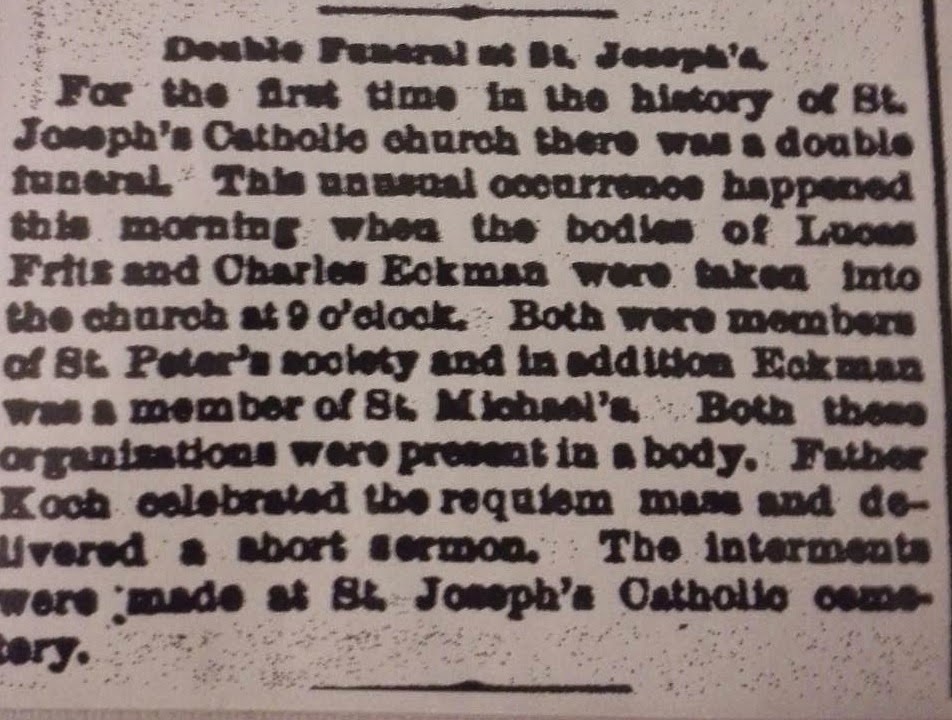Amy Johnson Crow, of No Story Too Small, challenges
fellow GeneaBloggers each week with her 52 Ancestors Challenge. This week’s
prompt is: Which
ancestor is the closest to where you live? Who has a story that hits “close to
home”?
Virginia
The
closest physically to me – there are many in Lancaster alone, let alone the
County – would be Charles Eckman, his wife Rosa Kirchner and her family.
Charles grew up in New Providence but moved to Lancaster
City and then married Rosa in 1881. Her parents and siblings lived in Lancaster City Germany
Charles
was – for the longest time – very elusive. Once he moved to Lancaster Strasburg
Township Manor
Street
While
Charles’ family attended – and were in fact founding members of – the Zion
Reformed Church (now UCC) in New Providence, Rosa’s family attended St. Joseph
For
years I could not figure out why he just seemed like he lost contact with his
family and fell off the face of the earth. Earlier this week, through the Genealogy
Do Over prompt, I gave an example of the value of collateral research.
Charles is another great example. The granddaughter of his sister, Margaret
Estella, was Virginia Stehman who married Rev. Lester Ringer. Virginia and
Lester lived, at the time I met them, across the street from the Zion UCC Church in New Providence .
She lived in the same house that the Eckman family had lived for many years and
that Charles had grown up in!
Shortly after Charles and Rosa were married, they came down for
Sunday lunch/picnic. She brought her family as well. Her family brought a keg!
The Eckmans, at that time according to Virginia
So, for
almost 20 years, I could only guess at what happened to Charles. I still do not
have all the answers. I followed the Kirchners and found a record of Charles
being buried at St Joseph New St Joseph
Cemetery Manor Street
Who has
a story that hits “close to home”?
My Aunt
Helen (1903-1995). I’m not sure that she has a story that hist close to home
but rather she is the one who encouraged me the most starting out. Born Helen
Mae Gould Still, she was an incredible woman. She was the youngest of six
children so keeping the family history kind of fell to her by way of simply
being the last one left and always living on the family farm. She held several
jobs throughout her life. Like me, she had a variety of interests. She even
reported for awhile for one of the papers I wrote for starting out!
52
Ancestors in 52 Weeks is a weekly genealogical challenge issued by Amy Johnson
Crow, of No Story Too Small.
© Jeanne Ruczhak-Eckman, 2015


How neat to come across that article in a collateral line that explained a lot about why the family had basically split! Great detective work on answering that question.
ReplyDeleteThanks, Dana.
ReplyDelete